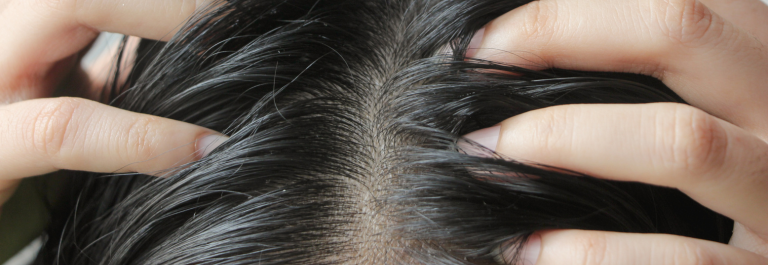Eczema, also known as atopic dermatitis, is a chronic skin condition characterized by itchy, red, and inflamed patches of skin and affects millions of people worldwide. The causes of eczema are varied and complex and often involve a combination of genetic, lifestyle, and environmental factors. In recent years, researchers have explored further how habits like smoking and vaping can trigger and exacerbate eczema symptoms.
In this blog, we will be delving into the relationship between smoking and eczema, and we'll cover everything you need to know about:
-
How tobacco smoke and vaping can impact your skin and those around you
-
The most common eczema symptoms to look out for
-
How to treat and naturally relieve eczema symptoms
Read on to learn more about the effects of smoking and vaping on your skin health and how to treat eczema flares caused by tobacco smoke naturally.
Does Smoking Trigger Eczema?
We know that poor health behaviors like smoking are linked to a plethora of health problems, including lung cancer and heart disease, but did you know that tobacco smoke can also trigger and worsen atopic dermatitis symptoms? Here's why...
Immune System Damage
One of the primary ways in which tobacco use can trigger eczema is through the harmful effects it has on the immune system. Smoking is known to suppress the function of various immune cells that play a crucial role in identifying and eliminating pathogens and abnormal cells. By compromising immune system function, individuals who smoke are more susceptible to infections, tissue damage, and inflammatory conditions like adult-onset atopic dermatitis.
Harmful Chemicals
The chemicals in cigarette smoke are known to irritate and damage the skin barrier, which is responsible for keeping moisture in and harmful irritants out. Natural moisturizers like beef tallow cream can help restore this protective barrier. The chemicals in cigarette smoke increase moisture loss from the skin and promote the breakdown of collagen and elastic fibers. This, in turn, dries out the skin and damages connective tissues, leading to premature aging and increasing the risk of an atopic dermatitis flare.
Nicotine is also known to constrict blood vessels and reduce blood flow to the skin. This not only impairs the skin's ability to heal and regenerate but also allows allergens to easily permeate the skin barrier, often leading to atopic and allergic contact dermatitis flares.
The Impact of Secondhand Smoke
It is essential to recognize that smoking affects not only active smokers but also those exposed to secondhand smoke around them. Secondhand tobacco smoke, also known as passive smoke or environmental tobacco smoke, refers to the smoke that is exhaled by smokers or released from burning tobacco products such as cigarettes, cigars, or pipes.
Although research findings have varied, some studies have found there is a positive association between eczema symptoms and children exposed to secondhand smoke at home and school. Research also indicates that prenatal exposure to secondhand smoke can increase a child's chances of developing eczema.
Furthermore, exposure to secondhand tobacco smoke is known to raise the risk factor for other health conditions such as asthma, lung diseases/cancer, respiratory infections, sinus infections, ear infections, allergic rhinitis (hay fever), cardiovascular disease, stroke, and sudden infant death syndrome (SIDS) in babies.
Can Vaping Trigger Eczema?
As vaping has risen in popularity as a 'healthier' alternative to cigarette smoking, research on the relationship between vaping and chronic skin conditions like eczema has also become an area of increasing interest.
Vaping involves inhaling aerosolized liquids, often containing flavorings, nicotine, and other harmful chemicals such as propylene glycol and glycerin. These chemicals are known to irritate the skin barrier and cause eczema flare-ups in some individuals.
Moreover, like traditional tobacco smoking, vaping affects the immune system's ability to regulate inflammation and alters immune responses to potential allergens and irritants, which could influence the development and severity of both atopic dermatitis and allergic contact dermatitis.
Eczema Symptoms
Atopic eczema tends to manifest slightly differently for every individual; however, there are a few crucial symptoms to look out for, including:
-
Dry, scaly skin patches
-
Intense itchy skin
-
Skin flaking or cracking
-
Redness
-
Inflammation
-
Skin feeling tight, sore, or stinging to touch
If cigarette smoke has triggered your eczema flare, you may also notice some further smoke irritation symptoms, such as:
-
Burning or watery eyes
-
Nasal congestion
-
Coughing
-
Hoarseness
-
Shortness of breath
-
Wheezing
If you or your loved one is experiencing difficulty breathing, infection, or other more severe atopic dermatitis symptoms after being exposed to tobacco smoke, we urge you to contact a medical professional.
Treating Eczema Symptoms
If you are suffering from atopic dermatitis, there are various treatment options including eczema cream and tips you can follow to lessen the uncomfortable symptoms.
Quit Smoking
If you smoke, taking steps to cut down and quit can help protect your health and the health of those around you. In one study, researchers found that participants had improved skin smoothness, brightness, coloring, and elasticity within nine months of smoking cessation.
No level of secondhand smoke is safe; by avoiding smoking in shared spaces, you can help protect others from the dangers of passive smoking and environmental tobacco smoke exposure.
Reduce Alcohol Consumption
Although moderate alcohol consumption is generally considered safe for most individuals, excessive and heavy drinking can lead to dehydration, inflammation, and immune system suppression, all of which disrupt the skin barrier and can exacerbate existing skin diseases and conditions like atopic dermatitis.
Emollient Creams
Emollients are often used to help improve skin barrier function and manage dry, itchy, or scaly skin caused by skin conditions like atopic dermatitis.
We recommend the Nourish + Hydrate Manuka Balm by YoRo Naturals. It provides all of the healing, natural antibacterial, and anti-inflammatory power of manuka honey without leaving a sticky residue like other honey products.
Emollient Sprays
Try our Organic Aloe Vera Skin Soothing Spray if your eczema is in a harder-to-reach spot. With its cooling and soothing, non-greasy formula, this spray is perfect for relieving eczema on the scalp, and in other awkward areas, you can't quite reach.
Quit Smoking and Protect Your Skin Today
Follow these tips to help you manage your eczema flares today and understand the risks that cigarette smoke has for your skin health and the health of those around you.



